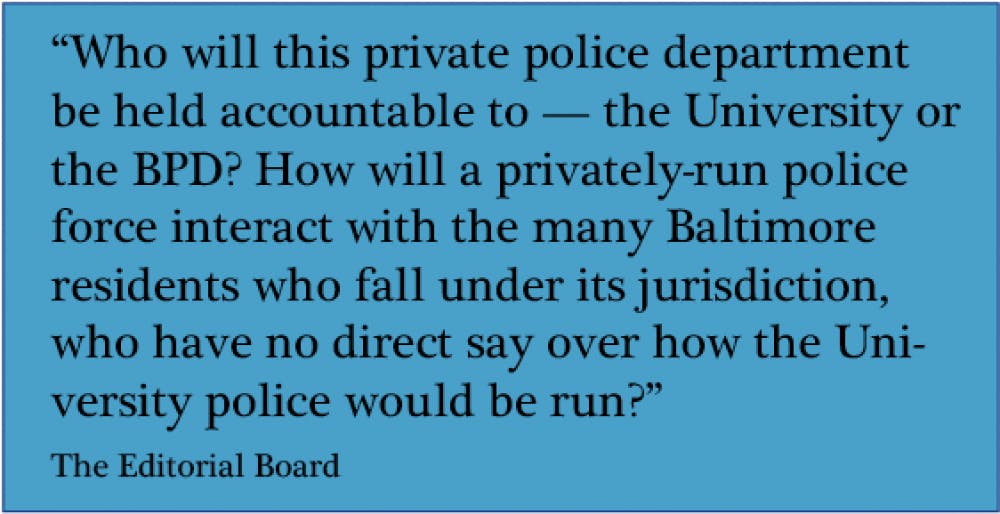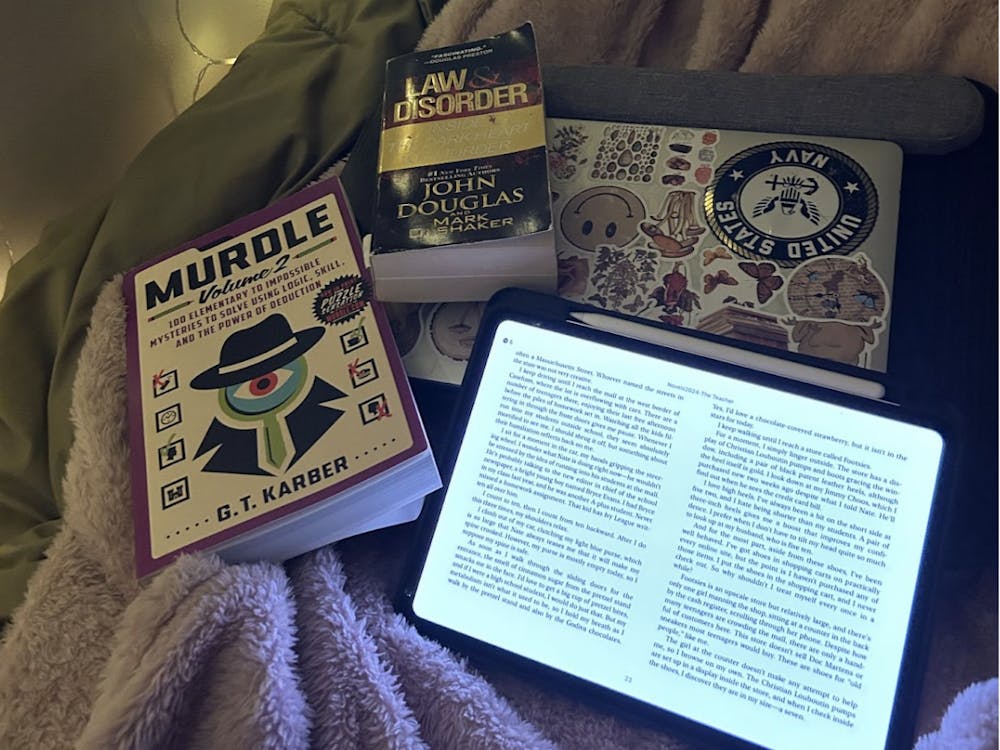This past Monday, with no prior warning, Hopkins students received an email from University President Ronald J. Daniels and CEO of Hopkins Medicine Paul B. Rothman regarding a bill that is being introduced this week in the Maryland General Assembly. The bill “would give private colleges and universities in Baltimore City the authority to work with the Baltimore Police Department (BPD) to create a university police department.”
This University police department would function alongside the pre-existing Hopkins security team, and it would be “developed and implemented through a detailed agreement with the BPD.” The school hopes to still consult faculty, students, staff and community representatives to help develop what they hope will become a “model university police department.”
This email came as a surprise to students, and seems to raise more questions than it answers.
It is unclear whether the the University police would be a branch of the BPD, or if it would be an independent entity that works closely with the BPD. We have several questions about how this force will function.
Who will this private police department be held accountable to — the University or the BPD? How will a privately-run police force interact with the many Baltimore residents who fall under its jurisdiction, who have no direct say over how the University police would be run?
Crime rates have been rising in Baltimore. The Baltimore Sun reported that the city had its highest rate of homicides per capita ever in 2017, and Baltimore has seen increases in all types of crime over the past year.
During this time, scandal has marred the BPD’s reputation. A 2016 Department of Justice report detailed how the department has committed systemic civil rights violations. The recent Gun Trace Task Force trials exposed the the deep cancer of corruption at the heart of the BPD. Both of these revelations shed light on a disjointed and fraudulent police force in need of reform.
We understand that a University police department may relieve some of the pressures experienced by the beleaguered BPD. Creating a University department would probably reduce the BPD’s need to patrol around Hopkins campuses and also assuage the fears of those who are concerned about climbing crime rates in Charles Village.
Despite this potential benefit, we hold grave concerns about the implementation of a University police force. President Daniels wrote that this police department would be based on other police departments at peer institutions in cities like Philadelphia and Chicago. We do not think that these departments are models for Hopkins to replicate.
At the University of Chicago, for example, the school police were given all the rights of the Chicago Police Department but were not subject to the Freedom of Information Act. The university police department was not obligated to release any of the records of police interactions. The University of Chicago Police Department has been accused by numerous sources of racially profiling and repeatedly harassing black people around campus.
We are further concerned that many of these officers would be patrolling areas where Baltimore community members live. With the University’s many campuses spread out across Baltimore, would those citizens be subject to the authority of a privately run police force that they have no direct say in or control over? This would further the divide between Hopkins students and Baltimore residents, when the relationship between the University and its City is already filled with tension.
It seems as though the University police department would work alongside the BPD, but we do not know what will prevent the BPD’s ineptitude from spilling over into the University’s proposed department. In an article published by The Baltimore Sun, the police academy’s head of legal instruction revealed that a third of graduating recruits “have not demonstrated that they can meet [basic] constitutional and legal standards.” These are unacceptable standards for the City and for Hopkins.
While it is unclear how many students were consulted about this idea before the bill was created, the University must consult us now. We encourage students to share their thoughts and suggestions in the feedback form Hopkins has created. The University should not be able to make decisions that affect its students without getting a full range of opinions from the students themselves.
This police force may be one short-term solution to local crime, but for lasting and meaningful change, we must address the underlying roots of crime in Baltimore. A history of racist redlining policies, a lack of job opportunities, as well as food deserts and various public health issues are just some of the factors that lead to high crime rates. We understand why the University wants to directly address the uptick in crime, but combating systemic problems would be a more positive and impactful way of doing so.
While Hopkins has done work in some of these areas, more can and should be done to try and solve some of the deep-rooted problems that face our city. The creation of a University police department seems like a short-term plan aimed at satisfying people who will only be here for four years, instead of a comprehensive plan that tends to the long-term issues that surround the Hopkins bubble.
With all this in mind, we believe our concerns outweigh the police force’s potential benefits. The administration’s lack of transparency has been disconcerting. We are skeptical that this transparency will improve considering the school’s past track record in communicating its plans to students. However, this does not mean that we will not continue to demand the right to know what is going on. Until more information becomes available, we do not support the creation of a private University police force.





